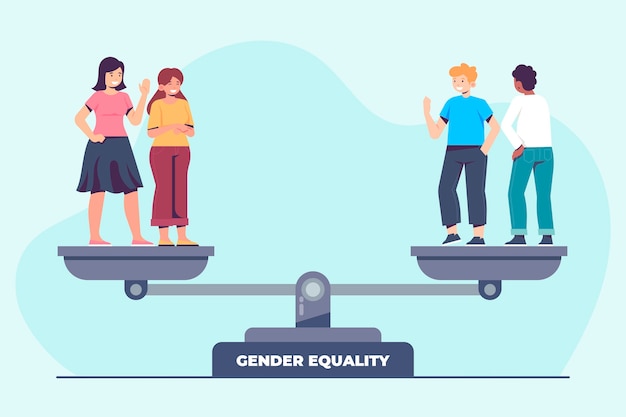10 Laws Every Woman Should Know That Protect Her Rights
Violence against women occurs every minute in India. Women are not safe, whether at home, in a public place, or at work. Your safety in your hands sounds like words you have to repeat. Given the sheer number of crimes committed against women, it is important for women to understand the laws that protect them.
By contentwriteramisha

Remember that knowledge is power. As a father, wife, daughter, employee, and spouse, these are rights that protect you and are important to understand.
Here are 10 laws women should know:
2006 Child Marriage Insurance Act
According to the International Center for Research on Women, almost 47 percent of girls are married before the age of 18. India currently ranks 13th in the world in terms of child marriage. Since child marriage has been steeped in Indian culture and traditions for centuries, it has been difficult to abolish it.
The Law for the Prohibition of Child Marriage came into force in 2007. For the purposes of this law, child marriage is defined as a marriage in which the bride and groom are minors, that is, the bride is under 18 years of age or the child under 18 years of age. 21 years old.
Parents attempting to marry underage girls are subject to this law. Because the law makes these marriages illegal, this is a major obstacle.
Special Marriage Act of 1954
The purposes of this law are to provide for a special form of marriage in certain cases, to provide for the registration of certain marriages, and for divorce. In a country like India, where there are different religions and strata when people of different religions and classes decide to marry, they do so under special marriage law.
It does not apply to the State of Jammu and Kashmir, nor to prospective spouses who are Indian citizens and residing abroad.

1961 deed insurance act
This law authorizes the taking or serving of the bride during marriage to the bride or groom and her family. The dowry system, the giving, and receiving of dowries, is the norm in India. Her boyfriend and family often ask that her girlfriend and family die for them. The system has taken on strong roots as women move in with their husbands and in-laws after marriage. Additionally, brides have been burned out over the centuries due to women's lack of economic independence and divorce taboos. When girls' families do not meet their death demands even after marriage, many women are tortured, beaten, and even burned.
This is one of the great challenges of our society. Women who openly complain about it have helped spread the word and encourage other women to take a stand.
Indian Divorce Act 1969
Indian Divorce Law allows for the dissolution of a marriage, mutual consent, nullity of marriage, legal separation and restitution of marital rights.
Family courts are created to open, hear and resolve such cases.
Maternity Benefits Act, 1861
This law regulates the employment of women and the reproductive benefits required by law. It stipulates that an employee who has worked in the organization for at least 80 days in the 12 months preceding the expected date of delivery is entitled to maternity benefits, including maternity leave, maternity leave. breastfeeding, medical allowance, etc.
Medical Abortion Act 1971
The law entered into force in 1972, amended in 1975 and 2002. The objective of the law is to reduce the incidence of illegal abortions and the resulting mortality and morbidity.
It specifies the conditions under which pregnancy can be terminated or aborted and identifies those qualified to comply.
Workplace Sexual Harassment (Prevention, Prohibition and Resolution) Act 2013
In order to ensure the safety of women at work, this law aims to protect them against sexual harassment in the workplace. 36% of Indian companies and 25% of international organizations do not complain about the Sexual Offenses Act according to a FICCI-EY report from November 2015.
Sexual harassment in the workplace also includes the use of sexually explicit language, invasion of private space, and a floating male partner for comfort, subtle touches, and sarcasm.

Representation (Protection) of Women Act 1986
This law prohibits the inappropriate portrayal of women through advertisements or in publications, texts, paintings, figures or in any other way.
National Commission for Women Act 1990
The National Commission for Women (NCW) is the legal entity of the Indian government, established in January 1992. Lalitha Kumaramangalam was appointed its president in 2014.
NCW represents women's rights in India and gives voice to their issues and concerns. The National Commission for Women Act aims to improve the status of women and has worked for economic empowerment.
Equal Payments Act 1976
This law prohibits discrimination in remuneration. It imposes equal pay for men and women.
It is important to know these and other laws that apply to protect the interests of women. Only if you are aware of your rights will you be able to tackle any abuse that is violated in your home, workplace or community.
What's Your Reaction?



















